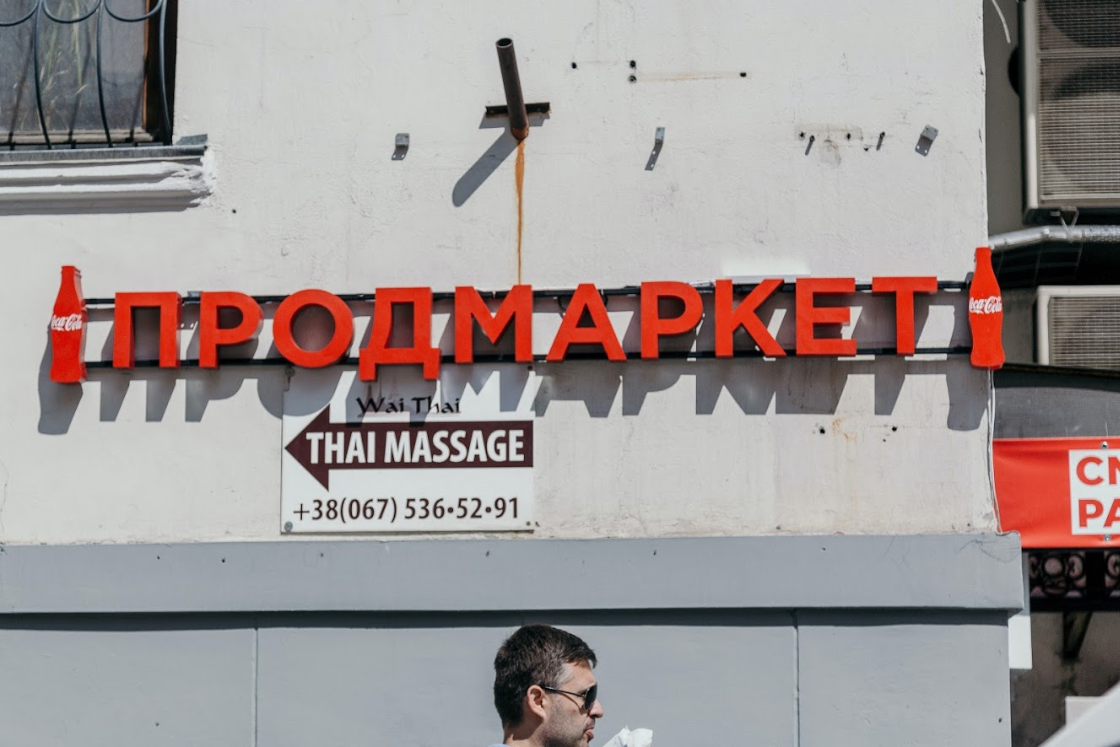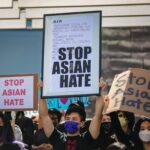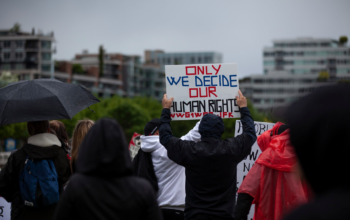During a recent Clubhouse room chat, I was reminded of an incident. I happened to be listening in on a conversation on “funny immigrant stories”. Shared were anecdotes such as, “my name is Mohammed, and I get stopped at immigration all the time” or “people assume I work in IT because I am from India”. This was mine: One summer afternoon in 2019, my friend and I were sitting in a bar in Copenhagen, chatting and having a merry time. She and I are both from Malaysia, and if I can give anyone any advice, it will be this. If you see Asians sitting in a group, please take a table over. This advice is well intended, as abroad our community is tiny, and we get really excited to speak in our mother tongue. So, do us a favour by taking a seat elsewhere, and do not hush us.
We were just sitting and talking until a Caucasian woman around mid-50’s asked if she could join us. Asians are polite creatures, so we agreed. We continued talking, and she asked us some questions and shared stories of her travels in Asia. Be mindful, the conversation was happening in English. We were having a lovely time and she seemed nice enough until she suddenly said to us “You ladies, should not come here and steal our husbands!”. Then she went on about Thai massage parlours and Vietnamese-run nail salons and how there are too many of these in Scandinavia. My girlfriend and I are both fluent Danish speakers, so at this point we switched to Danish as we suspected that she was, and we were right. I jokingly said, we are not aware which one is her husband as we do not have a directory of “who-is-whose” in our Asian community WhatsApp group. My girlfriend, who is older than me, told her to get off our table and some profanity was uttered.
I shared this story in the Clubhouse audio chat room, most of whom participating were immigrants or foreigners of Asian origins. The whole room roared with laughter, but a bittersweet discussion ensued. All of us have a shared story of how we are often accused of stealing something, be it jobs from the locals and now, other people’s husbands. And if we express our discomfort of being treated derogatorily in a foreign country, we all have experienced being told off: “If you don’t like it, why don’t you go back to your country!”.
Why do people migrate?
The United Nations Population Fund (UNFPA) reported that in 2015, around 244 million people, or 3.3 per cent of the world’s population lived outside their country of origin. A more recent number from 2017, reported in The United Nations International Migration Report (UN DESA), estimated 258 million people are living in a country other than their country of birth. Both these reports stated that some of the reasons why people migrate are for the search of better economic and social opportunities.
The pursuit of better economic opportunities is cited as one common reason people migrate. Economic migration is defined as a choice to move to improve one’s standard of living by gaining a better paid job. When Poland and other Eastern European countries joined the EU in 2004, the UK received many economic migrants from this region. The Philippines have one of the world’s largest migrant workers abroad. Known as Overseas Filipino Workers (OFW), they are economic heroes of the country because of their significant contributions towards the growth of the Philippine economy. Remittances sent by OFWs accounted for 11% of the country’s total GDP in 2018. Overseas remittances from a migrant worker are important to a country’s domestic economy as it helps increase the purchasing power of the population i.e., the family members left behind. The remittances improve credit constraints on the poor, improve the allocation of capital, substitute for the lack of financial development and thus accelerate economic growth. Via these inward remittances as well, countries can maintain a stable foreign reserve.
The United Nations International Migration Report stated that when supported by appropriate policies, migration can contribute to inclusive and sustainable economic growth and development in both home and host communities. Remittances constitute a significant source of household income that improves the livelihoods of families and communities through investments in education, health, sanitation, housing and infrastructure. Countries of destination benefit significantly from migration, as migrants often fill critical labour gaps, create jobs as entrepreneurs, and pay taxes and social security contributions. Some migrants are among the most dynamic members of the host society contributing to the development of science and technology and enriching their host communities by providing cultural diversity. If economic migration has such a beneficial effect, shouldn’t host countries make an effort to increase the dignity of these groups?
Diversity and inclusion of economic migrants
According to an OECD report, in many European countries the integration of migrants means their assimilation into a pre-existing, unified social order, with a homogenous culture and set of values. Integration is perceived as a one-way process, putting the onus for change solely on migrants. In my experience, this is true for most countries, so I will not single out the European countries as being the only bad examples at making an equitable diversity and inclusive policies for economic migrants. One of which is the requirement to speak the national language to obtain employment. Many migrants such as myself have successfully learnt the local language, as this is something we see necessary for survival rather than merely an employment requirement. The trap here is when you do speak the language, you rarely become as fluent as a native. You might remain passive in a conversation, where you reply only when you are spoken to.
Of course, there are also social class differences within the economic migrants’ group. Many of my peers are what is known as ‘professionals’ and due to the mobility strategies of the companies we are working for, we are fortunate enough to experience lives as expatriates. At the same time, there are those who are in lower-skilled labour such as those employed in short-term projects, for example construction workers. As a norm, we are slightly better compensated than our local peers, but this is because often we need to budget trips home and pay for international education of our kids if the local school programs aren’t in English. In addition, rents are typically higher for those on temporary working visas. Perhaps it is because of aspects like these that it bums us out when we are accused of being a kind of pest or economic freeloaders by the natives of the host countries.
Positive reinforcements of economic migrants at national level
Back to my story on Clubhouse. What struck my girlfriend and I was that not once did the lady ask us where we came from. Not that it matters, the fact she insulted us like that was a xenophobic act itself. Often people are stereotyped and grouped together by assumed characteristics such as the colour of their skin and appearances. There is a notion that all Asian look alike, which is an annoying statement. We can be similar in appearances but vastly different in terms of the religion we practise or the language we speak. The socio-political situation of our home countries and the rights we are guaranteed differs significantly. As a Malaysian, I have significant political, economic, and social benefits that come with being a citizen of a progressive country. I can travel without a pre-approved visa to the Schengen area. Citizens of many of my neighbouring countries, such as Thailand and Vietnam, who according to prevailing stereotypes are “just like me”, lack this freedom. An absence of international immigration cooperation restricts them to travel freely, for instance to Schengen-countries.
For those groups of economic migrants who lack democratic representations at home, this migration is more than just an opportunity for better lives but also an opportunity to live their lives in freedom and safety. I salute these economic migrants as they migrate and become entrepreneurs by opening massage and nail salon centres, and in so doing creating employment and adding to the local economy through value added and service taxes for example. If any, they should be applauded, not be accused of being hoarders of the economy or husband-thieves. They should be recognized as a dignified human being for making an honest living. It is the task of the host country to create a positive representation of these economic migrants in the community at large, through positive conversations and images that will lead to change in the ways that locals view their participation and contribution to the local economy.
Related articles
Starting again in Your Own Country: The Peruvian Example
A game of chess at the Greek-Turkish border
Photo Credits:
By Marjan Blan on Unsplash








